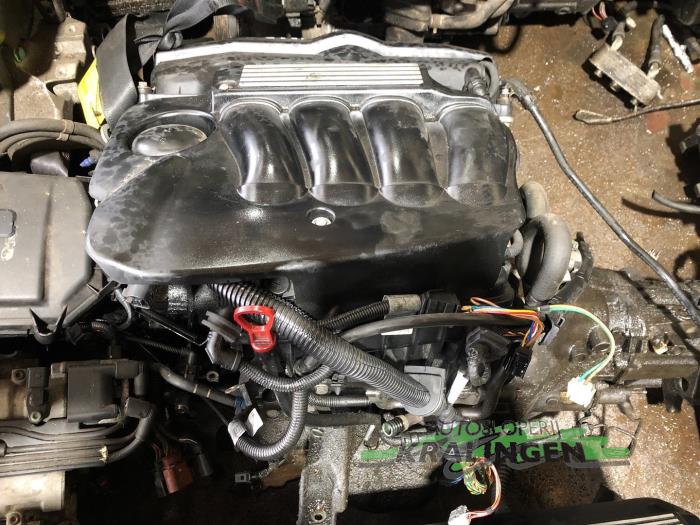Important Considerations for Choosing the very best Engine for Your Needs
In the realm of picking the suitable engine to satisfy your needs, numerous vital variables need careful factor to consider to ensure optimum performance and effectiveness. From the nuanced balance in between power and efficiency to the often-overlooked aspects of upkeep and solution needs, each element plays a pivotal role in identifying the most suitable engine for your particular needs.
Power and Performance
When evaluating engines for optimum efficiency, it is important to prioritize both power outcome and performance. Power outcome gauges the capability of an engine to generate energy, which straight affects its efficiency. A high power result is crucial for requiring tasks such as durable applications or high-speed demands. It guarantees that the engine can deal with the work successfully and effectively. Power alone is not adequate; efficiency plays a significant role in determining the general efficiency of an engine. Effectiveness describes how well the engine converts fuel right into functional energy. An extra effective engine will certainly provide much better mileage, lower discharges, and reduced operating prices. Striking the best equilibrium between power outcome and effectiveness is crucial to picking an engine that meets your details needs. It is important to take into consideration variables such as the planned use the engine, ecological impact, and long-term price ramifications when making this choice. By very carefully reviewing both power and performance, you can select an engine that supplies optimum efficiency and meets your demands effectively.
Gas Efficiency and Economy
Gas effectiveness refers to the engine's capability to transform gas into power with very little waste, straight affecting operating costs and environmental sustainability. Engines with higher fuel efficiency not only minimize gas expenses yet additionally reduce carbon emissions, adding to a greener operation.

Compatibility and Application
Thinking about the gas effectiveness and economic climate of an engine, the next vital facet to address is its compatibility and application within details functional contexts. Compatibility refers to how well the engine integrates with the overall system or devices it powers.
Different engines are developed for specific functions, whether it be industrial equipment, aquatic vessels, cars, or link power generators. Comprehending the designated application permits for the option of an engine that can deliver the required power output, torque, and operational characteristics.
Maintenance and Solution Needs
Maintenance and service demands play a crucial duty in ensuring the durability and optimal performance of an engine. Normal maintenance is crucial to prevent failures, extend the lifespan of the engine, and preserve its efficiency. When picking an engine, it is necessary to consider the manufacturer's advised upkeep timetable and the schedule of solution centers or qualified professionals.
Variables such as the regularity of oil changes, filter substitutes, and overall assessments can considerably influence the engine's performance. Some engines might call for even more constant servicing based upon their style and usage, while others may have longer periods between maintenance checks. It is vital to comply with these service requirements to stay clear of costly fixings and unanticipated downtime.

Cost and Budget Plan Considerations
Budget restraints usually play a significant function in the decision-making process when picking an engine for a certain application. When thinking about review the expense and budget ramifications of choosing an engine, it is necessary to assess not just the initial acquisition price yet additionally the long-term expenditures related to maintenance, gas consumption, and possible upgrades or fixings. It is crucial to strike an equilibrium between the ahead of time price of the engine and its overall lifecycle costs to make sure that the picked engine stays financially lasting throughout its functional lifespan.
Variables such as fuel effectiveness, dependability, and durability can directly affect the overall learn this here now price of possession of an engine. While a much more costly engine might have greater upfront prices, it could potentially result in lower upkeep and gas expenses over time, hence providing better value in the long run.
Verdict

Fuel effectiveness refers to the engine's capability to convert gas right into energy with very little waste, straight influencing operating prices and environmental sustainability.Variables influencing gas efficiency include engine design, combustion performance, and general performance optimization. Additionally, selecting the suitable gas kind and grade as recommended by the engine supplier can better improve effectiveness and extend engine life expectancy.
Engines with great service functions and conveniently available components can minimize upkeep expenses and decrease the time the engine is out of operation - bmw 318ti. It is important to strike a balance between the ahead of time price of the engine and its total lifecycle prices to make certain that the selected engine remains financially lasting throughout its functional lifespan